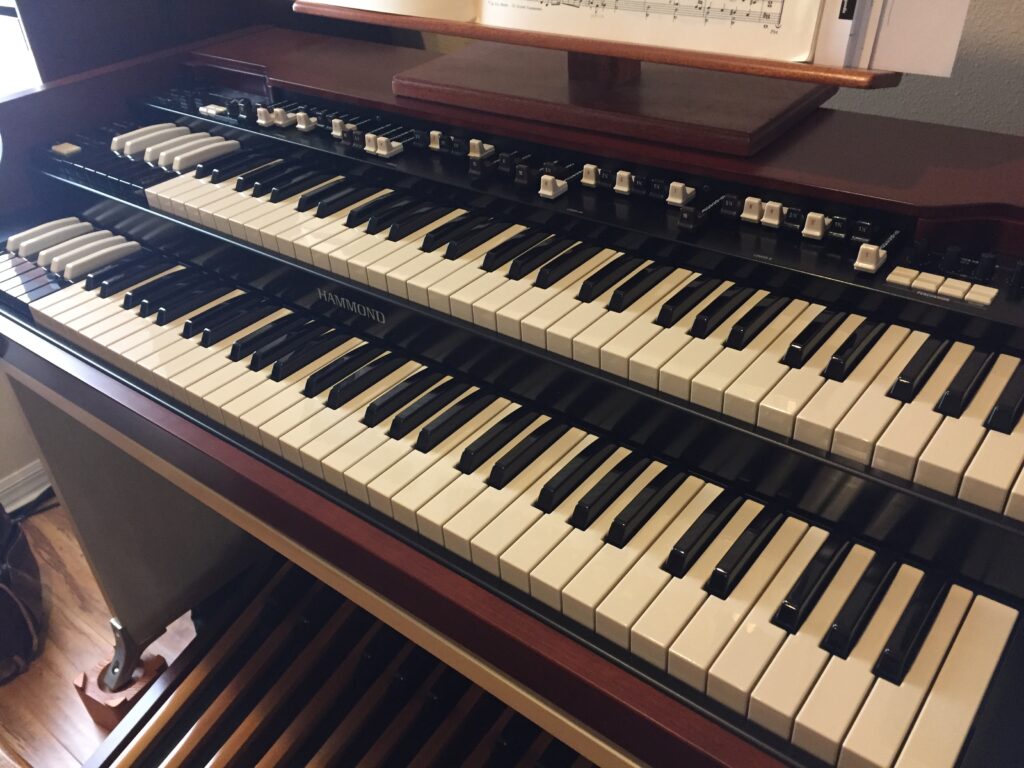Welcome to our dedicated organists’ corner at Azure Hills Music, where the world of organ music comes alive. Whether you’re an aspiring organist eager to delve into the majestic sounds of this grand instrument or a seasoned professional seeking to expand your repertoire and refine your skills, our organist resources blog section is your gateway to a wealth of knowledge and inspiration.
Here, you will find a curated collection of articles that explore the rich history, technique, and artistry involved in organ playing alongside an array of resources designed to support your musical journey. Whether you’re looking to learn the nuances of organ registration or understand the intricacies of different musical styles, Azure Hills Music is here to guide you. Dive in, explore, and let your organ music journey flourish with us.
Azure Hills Music contains affiliate links and is a member of the Amazon Services LLC Associates Program. As an Amazon Associate, we earn from qualifying purchases at no extra cost to you when you purchase using one of these Amazon links. Read our disclaimer and privacy policy for more information.
Organist Resources Articles
Catholic Organist’s Guide to Playing Hymns by Noel Jones – Book Review
Accompaniment: Leading Traditional Hymns From The Organ
Myths: Debunking Common Myths About the Pipe Organ
Temperament: The Organ and The Musical Temperament
Wedding Organist: Fees, Policies, and More
Hammond Organ: Introduction to the Hammond Organ
Hammond XK5: Unboxing and Setup Review
The Organ – Key Facts
- Pipe organs have been used in religious ceremonies and musical performances for centuries, dating back to ancient Greece.
- The earliest pipe organs were made of wood and powered by water or air pressure, but modern pipe organs use electricity to power their systems.
- Pipe organs can vary greatly in size and complexity, with some having thousands of pipes and intricate mechanical components.
- Electronic organs were introduced in the 1930s as a more affordable alternative to traditional pipe organs.
- Unlike pipe organs, which produce sound through physical pipes, electronic organs use digital recordings or synthesizers to mimic the sound of pipes.
- Electronic organs are generally more compact and versatile than pipe organs, making them popular for home use and smaller venues.
- Both pipe and electronic organs have pedals played with the feet and manuals (keyboards) for the hands.
- The sound of a pipe organ is often associated with church music and grand, dramatic performances.
- In addition to its use in religious settings, the pipe organ has been incorporated into various genres of music, including classical, jazz, and rock.
- The versatility and unique sound of pipe organs have made them a timeless instrument in traditional and modern compositions.
Top External Resources for Organists
Whether you’re a beginner organist or an experienced professional, having access to external resources can greatly enhance your skills and knowledge. That’s why we’ve compiled a list of the top external resources for organists that you should check out!
1. American Guild of Organists (AGO)
The AGO is the premier organization for organists in North America. They offer various resources, including workshops, webinars, competitions, and certifications for members. The AGO website also has a job board where you can find open positions for organists across the country.
2. British Institute of Organ Studies (BIOS)
This organization aims to promote the study of organs and their history in Britain. Their website includes articles, publications, and an interactive map displaying historic organs throughout the country.
3. Hauptwerk
Hauptwerk is a software program that allows users to play virtual pipe organs through MIDI keyboards. It offers a vast library of organ samples worldwide, providing an affordable and accessible way for organists to practice on different types of organs.
4. The Organ Historical Society (OHS)
The OHS is dedicated to preserving and promoting the history of organs in North America. Their website features articles, publications, and online archives providing valuable information for organ enthusiasts and researchers.
6. Pipedreams
Pipedreams is a nationally syndicated radio program showcasing organ music’s diversity and beauty. Their website offers archived episodes, featured artists and composers, and an extensive list of worldwide organ events.
7. The Royal Canadian College of Organists (RCCO)
Founded in 1909, the RCCO is a national organization for professional organists and church musicians in Canada. Their website offers resources such as certification programs, job postings, and publications.

